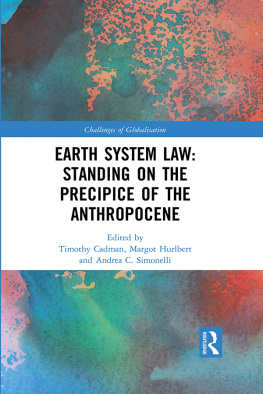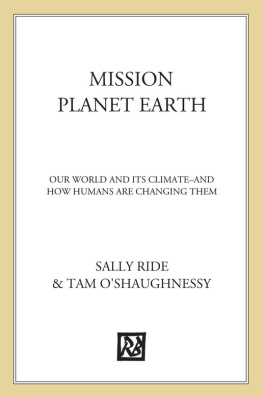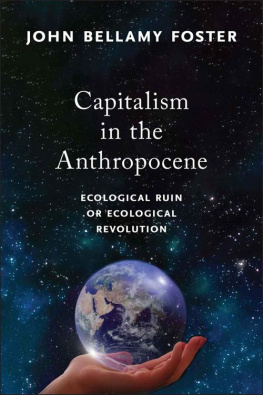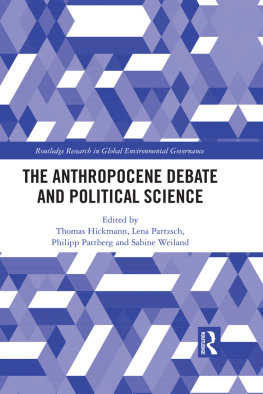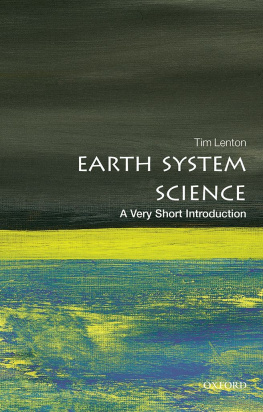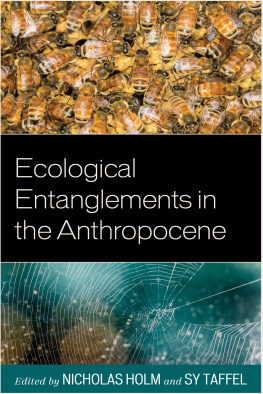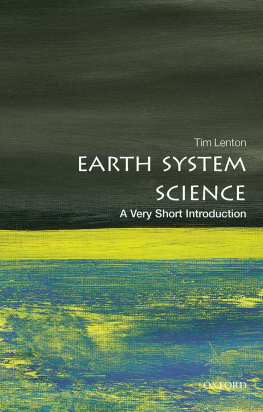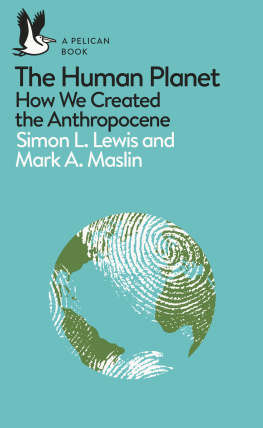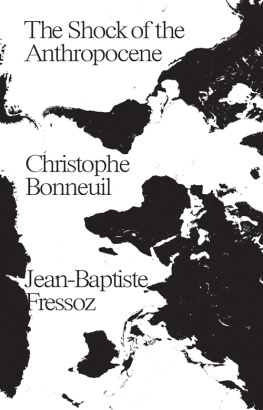The unprecedented challenges we are facing in the Anthropocene require radically new governance approaches that recognize the entanglement between human activities and Earth system processes. This volume provides a cutting-edge contribution to the emerging field of Earth system law by exploring and proposing novel legal developments for governing planetary transformations created by humans.
Agni Kalfagianni, Co-chair of the Earth System Governance Project
Earth System Law: Standing on the Precipice of the Anthropocene is a ground-breaking work in the climate governance literature. The book reassesses the status quo for legal process. To do so, it uses years of expert insight into how to meet the challenges environmental change presents to governance as its measure of assessment. Its conclusion is that the status quo for legal process has become dangerously antiquated at this critical moment in Earths history. Much of the book explores what types of legal reform are needed from various disciplinary positions. The result is an outline of a new theory of law, which draws its direction from pragmatic solutions to the governance problems created by climate change.
Undoubtably, this theory will appear strange and unfamiliar to many, straining their legal imagination. But this strain is a testament to the books importance. Many of us cling with good reason to our confidence in how society ought to be ordered. Our legal status quo, which supports the modern order, was hard-won in the trenches of Verdun and on the beaches of Normandy. Since then, it has served as the midwife for the birth of the modern nation-state, establishing a common ground for the negotiation of conflict in multiple contexts. Undermining this status quo may invite many risks to social stability. On the other hand, law inevitably must adapt to change and, as this book suggests, pragmatism must trump convention at this time when we stand on the precipice of environmental catastrophe.
For these reasons, Earth System Law: Standing on the Precipice of the Anthropocene is a provocative book, which ought to be read widely.
Fenner Stewart, Associate Professor of Law at the University of Calgary, Canada; Dentons Canada LLP Research Fellow in Energy Law &Policy; Research Fellow in Energy and Environment at The Schoolof Public Policy; Climate Governance Expert at the CanadaClimate Law Initiative
Earth System Law: Standing on the Precipice of the Anthropocene
This book systematically explores the emerging legal discipline of Earth system law (ESL), challenging the closed system of law and marking a new era in law and society scholarship. Law has historically provided stability, certainty, and predictability in the ordering of social relations (predominantly between humans). However, in recent decades, the Earths relationship in law has changed with increasing recognition of the standing of Mother Earth, inherent rights of the environment (such as flora and fauna, rivers), and now recognition of the multiple relations of the Anthropocene. The book questions the fundamental assumption that the law only applies to humans, and proposes that the Earth, as a system, has intrinsic rights and responsibilities. In the last ten years the planet has experienced its hottest period since human evolution, and by the year 2100, unless substantive action is taken, many species will be lost, and planetary conditions will be intolerable for human civilisation as it currently exists. Relationships between humans, the biosphere, and all planetary systems must change. The contributors address these challenging topics, setting the groundwork of ESL to ensure sustainable development of the coupled socio-ecological system that the Earth has become. Earth system law is an interdisciplinary and transdisciplinary research project, and, as such, this book will be of great interest to researchers and stakeholders from a wide range of disciplines, including political science, anthropology, economics, law, ethics, sociology, and psychology.
Timothy Cadman is a Senior Research Fellow with the Earth System Governance Project and an Associate of its Task Force on Earth System Law. He is a Research Fellow in the Law Futures Centre and the Institute for Ethics, Governance and Law at Griffith University, Australia.
Margot Hurlbert is a Senior Research Fellow with the Earth System Governance Project and an Associate of its Task Force on Earth System Law. She is Canada Research Chair, Tier 1 Professor in Climate Change, Energy, and Sustainability Policy at the Johnson-Shoyama Graduate School of Public Policy, Canada.
Andrea C. Simonelli is Assistant Professor of Political Science at Virginia Commonwealth University, USA, and founder of Adaptation Strategies International (ASI).
Challenges of Globalisation
Series Editors: Charles Sampford and Melea Lewis, Griffith University, Australia
This series seeks to make systematic contributions to international debates over two intimately related issues:
- The values that should inform the governance of modern states and the globalizing world in which they are increasingly enmeshed, in particular whether the liberal democratic values that sought to civilize the sovereign state need to be reconceived as global values.
- The institutions that are needed to realize those values, be they local, national, regional, international, transnational or global.
Strengthening the Rule of Law through the UN Security Council
Edited by Jeremy Farrall and Hilary Charlesworth
Law, Lawyering and Legal Education
Building an Ethical Profession in a Globalizing World
Charles Sampford and Hugh Breakey
Norm Antipreneurs and the Politics of Resistance to Global Normative Change
Edited by Alan Bloomfield and Shirley V. Scott
Judges and Democratization
Judicial Independence in New Democracies
B. C. Smith
Regulating the Use of Force by United Nations Peace Support Operations
Balancing Promises and Outcomes
Charuka Ekanayake
Earth System Law
Standing on the Precipice of the Anthropocene
Edited by Timothy Cadman, Margot Hurlbert and Andrea C. Simonelli
For more information about this series, please visit: https://www.routledge.com/Challenges-of-Globalisation/book-series/CG
First published 2022
by Routledge
2 Park Square, Milton Park, Abingdon, Oxon OX14 4RN
and by Routledge
605 Third Avenue, New York, NY 10158
Routledge is an imprint of the Taylor & Francis Group, an informa business
2022 selection and editorial matter, Timothy Cadman, Margot Hurlbert and Andrea C. Simonelli; individual chapters, the contributors
The right of Timothy Cadman, Margot Hurlbert and Andrea C. Simonelli to be identified as the authors of the editorial material, and of the authors for their individual chapters, has been asserted in accordance with sections 77 and 78 of the Copyright, Designs and Patents Act 1988.
All rights reserved. No part of this book may be reprinted or reproduced or utilised in any form or by any electronic, mechanical, or other means, now known or hereafter invented, including photocopying and recording, or in any information storage or retrieval system, without permission in writing from the publishers.
Trademark notice: Product or corporate names may be trademarks or registered trademarks, and are used only for identification and explanation without intent to infringe.

